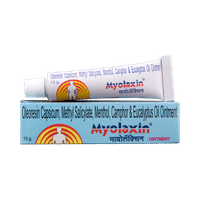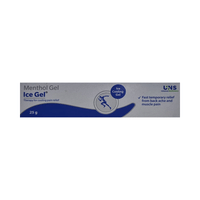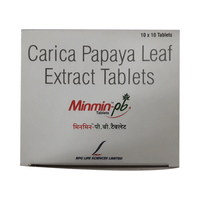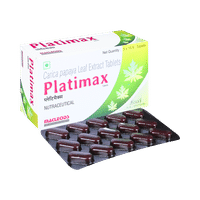Acemol 100 mg/500 mg Tablet

Rs.34.80for 1 strip(s) (10 tablets each)
food interaction for Acemol
alcohol interaction for Acemol
pregnancy interaction for Acemol
lactation interaction for Acemol
food
alcohol
pregnancy
lactation
Acemol 100 mg/500 mg Tablet may be taken with or without food, but it is better to take it at a fixed time.
None
None
CAUTION
It is unsafe to consume alcohol with Acemol 100 mg/500 mg Tablet.
UNSAFE
Acemol 100 mg/500 mg Tablet may be unsafe to use during pregnancy. Although there are limited studies in humans, animal studies have shown harmful effects on the developing baby. Your doctor will weigh the benefits and any potential risks before prescribing it to you. Please consult your doctor.
CONSULT YOUR DOCTOR
Information regarding the use of Acemol 100 mg/500 mg Tablet during breastfeeding is not available. Please consult your doctor.
CONSULT YOUR DOCTOR
SALT INFORMATION FOR Acemol
Aceclofenac(100mg)
Uses
Aceclofenac is used for pain relief. It relieves pain and inflammation in conditions like rheumatoid arthritis, ankylosing spondylitis, and osteoarthritis.
How it works
Aceclofenac is a non-steroidal anti-inflammatory drugs (NSAID). It works by blocking the release of certain chemical messengers that cause pain and inflammation (redness and swelling).
Common side effects
Nausea, Diarrhea, Abdominal pain, Constipation, Dyspepsia, Increased liver enzymes, Gastritis, Mouth ulcer, Increased blood urea, Increased creatinine level in blood, Rash, Anaphylactic reaction, Anemia (low number of red blood cells), Cardiac failure, Gastrointestinal ulcer, Breathlessness
Paracetamol(500mg)
Uses
Paracetamol is used for pain relief and fever. It is used to relieve pain in conditions like headache, muscle pain, or dental pain.
How it works
Paracetamol is an analgesic (pain reliever) and anti-pyretic (fever reducer). It works by blocking the release of certain chemical messengers that cause pain and fever.
Common side effects
Nausea, Vomiting, Insomnia (difficulty in sleeping), Headache, Constipation, Itching, Nephropathy, Hypersensitivity, Platelet disorders, Depression, Confusion, Hallucination, Abnormal vision, Hypoglycemia (low blood glucose level), Sterile pyuria, Liver toxicity, Hemorrhage
SUBSTITUTES FOR Acemol
757 Substitutes
757 Substitutes
Sorted By
 Rs. 67.65pay 38% more per Tablet
Rs. 67.65pay 38% more per Tablet Rs. 48.40pay 35% more per Tablet
Rs. 48.40pay 35% more per Tablet Rs. 42.90pay 20% more per Tablet
Rs. 42.90pay 20% more per Tablet Rs. 62.20pay 73% more per Tablet
Rs. 62.20pay 73% more per Tablet Rs. 160pay 345% more per Tablet
Rs. 160pay 345% more per Tablet
Expert advice FOR Acemol
- You have been prescribed Aceclofenac to relieve pain and inflammation.
- Take it with food or milk to prevent upset stomach.
- Take it as per the dose and duration prescribed by your doctor. Long term use may lead to serious complications such as stomach bleeding and kidney problems.
- It may cause dizziness, drowsiness or visual disturbances. Use caution while driving or doing anything that requires concentration.
- Avoid consuming alcohol while taking Aceclofenac as it can cause excessive drowsiness and increase your risk of stomach problems.
- Inform your doctor if you have a history of heart disease or stroke.
- Your doctor may regularly monitor your kidney function, liver function and levels of blood components, if you are taking this medicine for long-term treatment.
Frequently asked questions FOR Acemol
Aceclofenac
Q. Is Aceclofenac a good painkiller?
Aceclofenac is effective in relieving pain and inflammation. It is used to provide relief from various sorts of pain such as sprains, strains and other injuries. It is also helpful in various types of arthritis, gout, pain and inflammation following surgery.
Q. Is Aceclofenac safe?
Aceclofenac is safe if used in the dose and duration advised by your doctor. Take it exactly as directed and do not skip any dose. Follow your doctor's instructions carefully and let your doctor know if any of the side effects bother you.
Q. Does Aceclofenac get you high?
No, Aceclofenac does not get you high. It does not have an abuse potential (drug-seeking behavior) and does not cause physical or psychological dependence. However, if you do not feel well, consult your doctor.
Paracetamol
Q. What if I vomit after taking Paracetamol?
If you vomit in less than 30 minutes after having a dose of Paracetamol tablets or syrup, retake the same dose again. If you vomit after 30 minutes of a dose, you do not need to take another one until the next standard dose.
Q. When will I feel better after taking the Paracetamol?
Usually, you will start feeling better after about half an hour of taking a Paracetamol.
Q. How often can I take the Paracetamol?
You should only take four doses of Paracetamol in 24 hours. There should be a gap of at least 4 hours between two doses. Do not take Paracetamol for more than 3 days without consulting a doctor first.






















